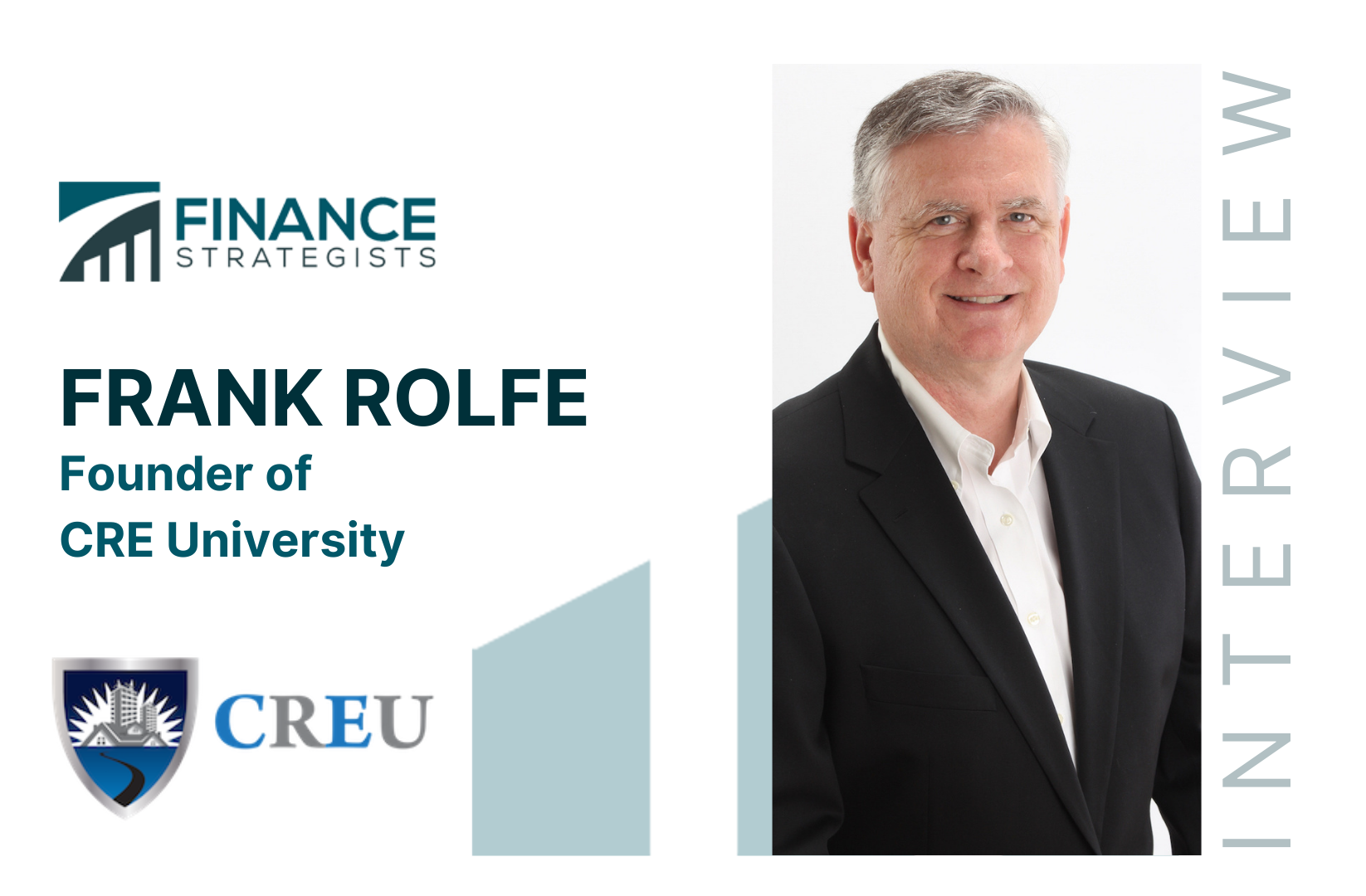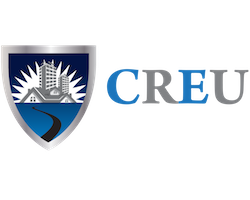The money is in the niches. Finance Strategists recently talked with Frank Rolfe, founder of CRE University. Frank’s journey from one mobile home park to a portfolio of thousands of lots is a real-world education in successful commercial real estate investing. Q: Who are you and what’s your background? I'm a partner in the fifth largest mobile home park portfolio in the United States, with around 20,000 lots in around 28 states. But it all started with just one mobile home park in 1996. And before that, I was the largest private owner of billboards in Dallas/Ft. Worth, and sold to a public company in 1996 -- and again started with just one billboard. That's pretty much been my business career: I start with one thing, figure out the science of what makes it work, and then scale it up. Q: Who has been your biggest influence, and why did they have such a significant effect on you? I constantly read biographies of both business and military leaders and try to glean the basic points that made them successful. I also come from a family of entrepreneurs, so I don't have the usual fears that most people have of taking the path less traveled. There is no one person that I model myself after, but I try to take the lessons learned from a great number of people. Q: Knowing what you know now, what would you have told yourself when you were starting out? I started my first business -- the billboard company -- when I was 21, so I couldn't have started any earlier and it certainly wouldn't be "don't work for someone else -- go work for yourself," like many people say. While there are certain business mistakes I made along the way, if you change one thing about your life, then everything else sequentially would also change, so I would not want to alter any part of it. Q: What is CRE University? CRE stands for Commercial Real Estate University and that's what the website is all about: learning the basic building blocks -- as well as tricks and insider secrets -- to all the various sectors of commercial real estate. These include mobile home parks, RV parks, self-storage, billboards, and many others. Q: What led you to start CRE University? My partner Dave Reynolds and I started CRE University after speaking at a couple of other groups' real estate seminars and realizing that much of the information presented was not factual and the presenters had no real-life experience. We decided to make our materials only based on science and without any of the "cheerleading" that many individuals engage in. Everything we produce must pass the basic test: "Would I feel good about my own family taking the time to read, watch, or listen to this?" The Golden Rule has been our guide to CRE University. Our clientele appreciates the difference it has made. Q: What makes CRE University different from other commercial real estate education services? All the material is based upon the real-world experiences of myself and my partner, Dave Reynolds. Unlike many real estate groups, we approach things like a college class and don't sugarcoat anything or hold any information back. We think that the only way you can succeed is to understand the risks and the science behind that sector, and we only allow material that is based on actual facts and expertise earned from making a success of that niche. Q: What has the experience of building the business taught you? Our real estate careers have been all about: 1) unlocking the science of how the sector operates 2) doing outstanding due diligence 3) buying only properties that have extremely good odds of success based on that science 4) once the model is perfected, scaling it up at an appropriate pace based on the size of the opportunity and our ability to find good deals. Many real estate investors don't fully understand what they're doing and instead follow a "herd mentality" in which they simply hope it will all work out. While sometimes it does, not applying science to what you're doing is really basically just speculating, and when the market turns you are in big trouble. Q: Where do you see things headed for you in the next five years? At age 60 the pattern of my life is pretty well set. I don't anticipate much changing until the end of the movie. That being said, America is gearing up for one of the most profound economic calamities in a generation, and all investors need to remain nimble and aware of the situation. Any investor who says "here's my plan and I'm sticking with it" is a fool because the correct motto would be "here's my plan but I may change it at any minute based on where the opportunities are." Even Paul McCartney had a Plan B if the Beatles didn't work out of owning a sandwich shop. Based on the current projections on inflation -- and the science that backs the premise that real estate does extremely well in those conditions -- I believe that commercial real estate will do extremely well. You can learn more about Frank, Dave, and CRE University at CREUniversity.com.
Introduction
Who is Frank Rolfe?
Business

True Tamplin is a published author, public speaker, CEO of UpDigital, and founder of Finance Strategists.
True is a Certified Educator in Personal Finance (CEPF®), author of The Handy Financial Ratios Guide, a member of the Society for Advancing Business Editing and Writing, contributes to his financial education site, Finance Strategists, and has spoken to various financial communities such as the CFA Institute, as well as university students like his Alma mater, Biola University, where he received a bachelor of science in business and data analytics.
To learn more about True, visit his personal website or view his author profiles on Amazon, Nasdaq and Forbes.











